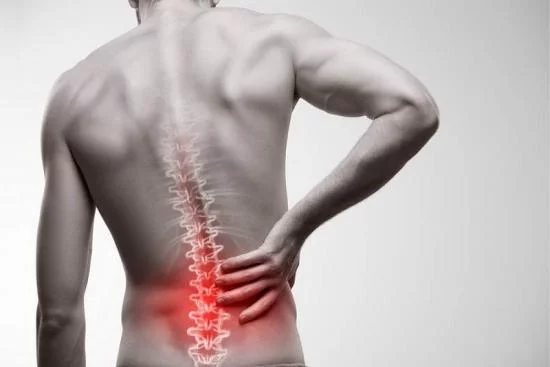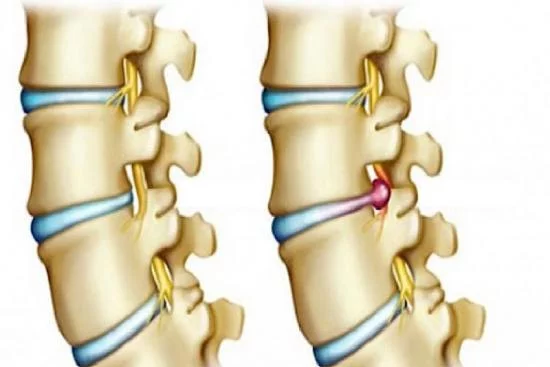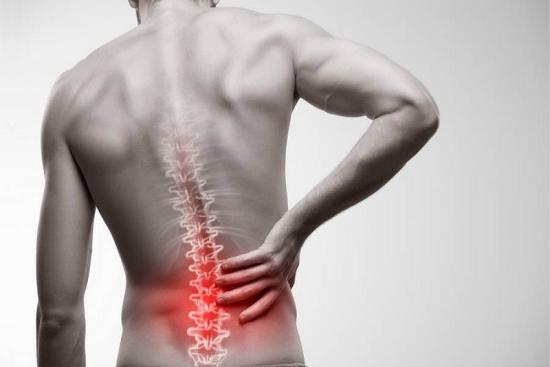A herniated disc is a deformity that occurs when an intervertebral disc protrudes beyond its natural cavity. It usually occurs in the back or neck and can cause severe, debilitating pain. Depending on the severity, your doctor may recommend surgical treatment.
By choosing disc herniation treatment in Turkey, you gain access to quality care in renowned medical facilities.
Cost of herniated disc treatment in Turkey
The cost of herniated disc treatment in Turkey varies depending on the treatment method adapted to your situation (medical treatment, injections or surgery). At Turquie Santé, we are committed to offering you the best prices while guaranteeing access to experienced surgeons and renowned facilities certified to international standards.
Our priority is to provide you with high quality, personalized and affordable care without compromising your well-being. To ensure this, we invite you to read the testimonials of our patients who share their experiences of the quality of care and support they received.
Take the first step toward recovery today by requesting a free online consultation. Our teams are here to support you every step of the way.
Contact us today for a personalized diagnosis and optimal management of your herniated disc.
Best Clinics with Verified Reviews

- Multispecialized hospital
- 7 operating rooms
- Capacity é of 170 beds

- Multispecialized hospital
- Hospital founded in 2007
- Very good reputation in ENT department
Types of herniated discs
A herniated disc is a common pathology that affects the intervertebral discs, the cushions between the vertebrae of the spine. Depending on their location, they can cause specific pain and symptoms. Here are the two main types of herniated discs:
- Lumbar disc herniation: Lumbar disc herniation occurs in the lumbar region, or at the level of the lumbar vertebrae in the lower back. This area is subject to a great deal of daily stress, making it the most common location for disc herniation.
- Cervical disc herniation: Cervical disc herniation affects the cervical vertebrae in the neck. It is often associated with cervicobrachial neuralgia, a pain that radiates from the neck to the shoulders and arms.

Recognizing the signs of a herniated disc
The symptoms of a herniated disc can vary greatly from person to person, depending on the location of the herniation and the degree of nerve compression. While some people may experience no symptoms at all, others may experience severe pain and functional limitations.
Common signs associated with herniated discs include:
- Pain that is exacerbated by movement: Pain may be increased by sneezing, coughing, or physical exertion.
- Increased sensitivity when sitting: Sitting for long periods of time can increase pain.
- Muscle stiffness: There may be a sensation of stiffness in the affected area.
- Radiating pain: Pain may spread along the affected nerves, causing discomfort in other parts of the body.

Symptoms of lumbar disc herniation
The main symptoms of lumbar disc herniation are :
- Lumbago: localized pain in the lower back, often intense and persistent.
- Sciatica: pain that radiates along the sciatic nerve, crossing the buttock and down to the leg. It may be accompanied by tingling, numbness or muscle weakness.
- Difficulty walking or standing: Pain can restrict movement and make daily activities difficult.
- Loss of reflexes: In some cases, reduced reflexes in the legs may be observed.
Symptoms of a herniated cervical disc
A herniated cervical disc in the neck is characterized by distinct symptoms:
- Cervical pain: severe pain in the neck and back of the neck, often worsened by head movements.
- Cervicobrachial neuralgia: Pain radiating from the neck into the shoulder, arm, and sometimes into the fingers. It may be accompanied by tingling, numbness, or muscle weakness in the arm.
- Neck stiffness: Difficulty moving the head, accompanied by a feeling of tightness.
- Headache: Persistent headaches may occur due to muscle and nerve tension.
If you experience any of the above symptoms, it's important to see a specialist for an accurate diagnosis. Early treatment can relieve pain, prevent complications, and keep symptoms from getting worse.
Causes of herniated discs
Herniated discs are the result of several factors, often interrelated, that affect the integrity of the intervertebral discs. The main causes include:
- Natural age-related degeneration: Intervertebral discs lose moisture and elasticity over time, making them more susceptible to cracking and rupturing.
- Mechanical wear: Repetitive movements, poor posture or excessive strain on the spine can accelerate disc wear.
- Trauma or injury: A violent blow, accident or intense physical effort (such as lifting a heavy load incorrectly) can cause a herniated disc.
- Genetic and morphological factors: Certain family or anatomical predispositions can increase the risk of developing a herniated disc.
- Sedentary lifestyle: Lack of physical activity weakens the muscles that support the spine, increasing pressure on the discs.
- Overweight or obesity: Being overweight puts extra pressure on the discs and promotes their deterioration.
These factors, alone or in combination, contribute to the development of herniated discs. A thorough understanding of these causes enables targeted prevention and appropriate treatment.
Diagnosis of symptoms in Turkey
Diagnosis of a herniated disc is primarily based on a thorough clinical evaluation, including symptom analysis and range of motion testing. In more complex cases, where pain persists for more than six weeks, additional medical imaging tests may be ordered. These studies, such as MRI, CT scans or X-rays, help to confirm the diagnosis and adjust therapeutic management.
This rigorous diagnostic approach ensures accurate evaluation and treatment tailored to each individual patient.
Herniated disc treatment in Turkey: Medical and surgical approaches
In Turkey, the treatment of herniated discs is adapted to the severity of each case, whether lumbar or cervical. Depending on the nature and development of the pathology, recovery may be spontaneous within a few weeks or may require surgical intervention. For an accurate diagnosis and personalized treatment plan, we invite you to request an online consultation. Our specialized surgeons will analyze your situation and propose the treatment solution best suited to your needs.
Medical treatment: Pain management
The primary goal of medical treatment is to relieve pain and improve mobility. Depending on the severity of your symptoms, your doctor may prescribe:
- Analgesics, anti-inflammatories, or muscle relaxants for up to three weeks.
- Stronger pain medicines, such as narcotics or high-dose anti-inflammatories, for persistent pain.
In cases where pain is resistant to conventional treatments, therapeutic injections may be considered. These injections may include corticosteroids, analgesics, or even enzymes that are injected directly into the affected disc to reduce inflammation and relieve pressure on the nerves.
Surgical treatment for complex cases
When pain becomes chronic and causes significant disability, or when there is persistent muscle weakness in a limb (arm or leg),surgery may be recommended. The goal of surgery is to relieve the pressure that the damaged disc exerts on the nerves and nerve roots.
Two main surgical techniques are used:
- Discectomy: Total or partial removal of the disc.
- Microdiscectomy: A minimally invasive technique for greater precision and faster recovery.
Share this page






